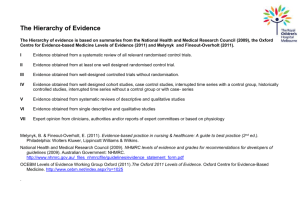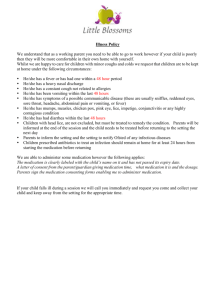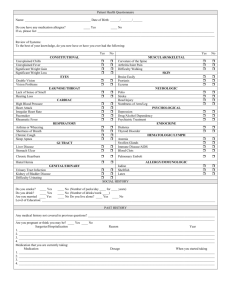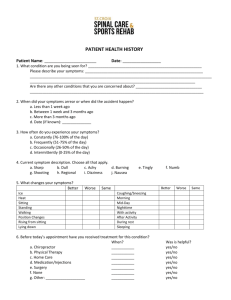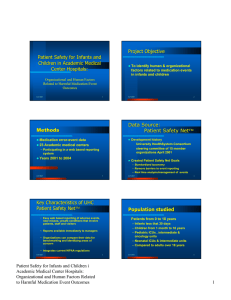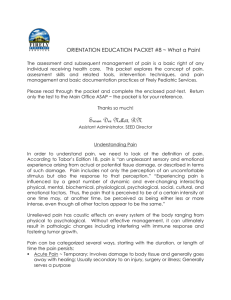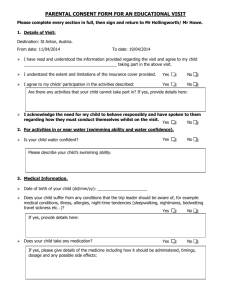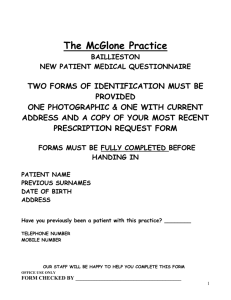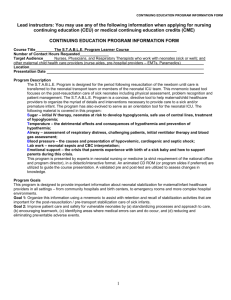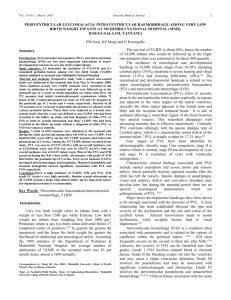PREREQUISITES NGR 6140 Physiology and Pathophysiology for
advertisement
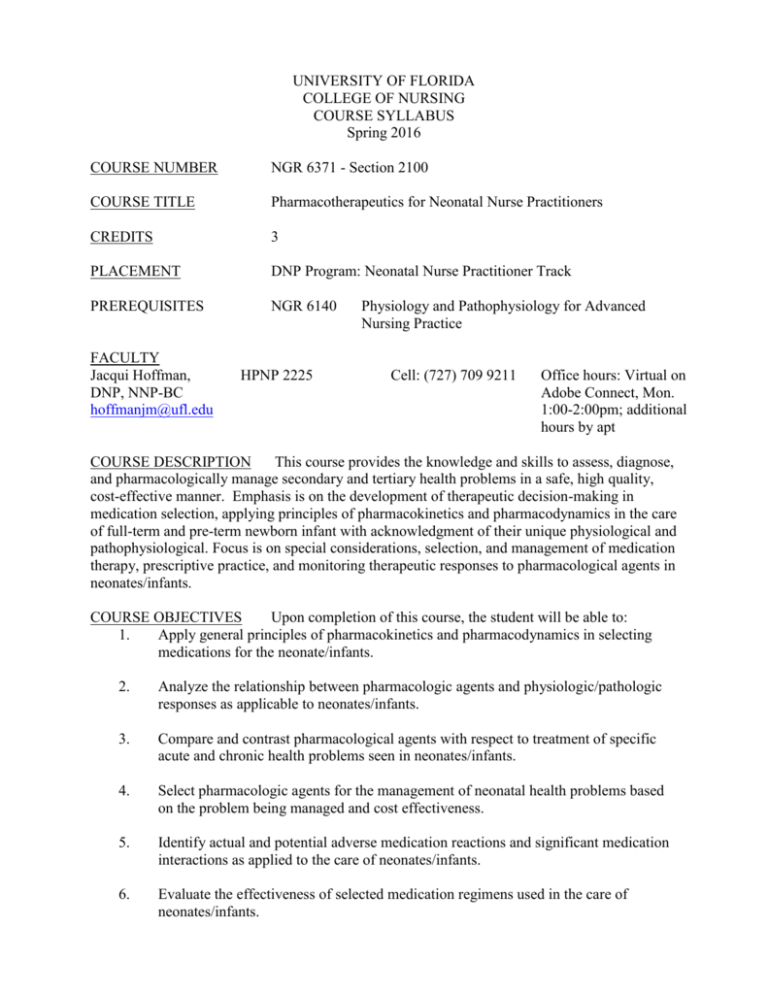
UNIVERSITY OF FLORIDA COLLEGE OF NURSING COURSE SYLLABUS Spring 2016 COURSE NUMBER NGR 6371 - Section 2100 COURSE TITLE Pharmacotherapeutics for Neonatal Nurse Practitioners CREDITS 3 PLACEMENT DNP Program: Neonatal Nurse Practitioner Track PREREQUISITES NGR 6140 FACULTY Jacqui Hoffman, DNP, NNP-BC hoffmanjm@ufl.edu HPNP 2225 Physiology and Pathophysiology for Advanced Nursing Practice Cell: (727) 709 9211 Office hours: Virtual on Adobe Connect, Mon. 1:00-2:00pm; additional hours by apt COURSE DESCRIPTION This course provides the knowledge and skills to assess, diagnose, and pharmacologically manage secondary and tertiary health problems in a safe, high quality, cost-effective manner. Emphasis is on the development of therapeutic decision-making in medication selection, applying principles of pharmacokinetics and pharmacodynamics in the care of full-term and pre-term newborn infant with acknowledgment of their unique physiological and pathophysiological. Focus is on special considerations, selection, and management of medication therapy, prescriptive practice, and monitoring therapeutic responses to pharmacological agents in neonates/infants. COURSE OBJECTIVES Upon completion of this course, the student will be able to: 1. Apply general principles of pharmacokinetics and pharmacodynamics in selecting medications for the neonate/infants. 2. Analyze the relationship between pharmacologic agents and physiologic/pathologic responses as applicable to neonates/infants. 3. Compare and contrast pharmacological agents with respect to treatment of specific acute and chronic health problems seen in neonates/infants. 4. Select pharmacologic agents for the management of neonatal health problems based on the problem being managed and cost effectiveness. 5. Identify actual and potential adverse medication reactions and significant medication interactions as applied to the care of neonates/infants. 6. Evaluate the effectiveness of selected medication regimens used in the care of neonates/infants. COURSE SCHEDULE Day Class On-line Time First class will be on Tuesday, January 5th with the remaining classes on Mondays from 2 – 5PM on Adobe Connect. There will be no class on exam days. E-Learning in Canvas is the course management system that you will use for this course. E-Learning in Canvas is accessed by using your Gatorlink account name and password at https://lss.at.ufl.edu/. There are several tutorials and student help links on the E-Learning login site. If you have technical questions call the UF Computer Help Desk at 352-392-HELP or send email to helpdesk@ufl.edu. It is important that you regularly check your Gatorlink account email for College and University wide information and the course E-Learning site for announcements and notifications. Course websites are generally made available on the Friday before the first day of classes. TOPICAL OUTLINE 1. Clinical pharmacokinetics and individualization of medication therapy including absorption, distribution, metabolism and excretion. 2. Principles of half-life, effective concentration, peak plasma levels, therapeutic blood levels, and minimal and maximum effective levels. 3. Pharmacodynamics, including alterations of cell environment and functions and medication receptor activity. 4. Pharmacotherapeutic decision-making for common acute and chronic health problems including medication selection, intervention, and adverse reactions. 5. Therapeutic response to pharmacological agents. 6. Adverse medication reactions and appropriate interventions. 7. Prescriptive practice and dispensing limitations for advanced practice nurses including writing prescriptions, legal authority and restrictions, ethics, and clinical standards. 8. Resource utilization 9. Medication use during pregnancy and lactation 10. Specific neonatal therapeutics A. Antimicrobials B. Vaccines C. Respiratory agents D. E. F. G. H. I. J. K. L. M. Cardiovascular agents Endocrine agents Renal agents Hematologic agents Resuscitative agents CNS agents Gastrointestinal agents Skin care agents Pain management Nutritional agents TEACHING METHODS Online lecture, discussion, case studies, written materials, computer assisted instruction and audiovisual materials. LEARNING ACTIVITIES Readings, participation in discussion, and case study assignments. EVALUATION METHODS/COURSE GRADE CALCULATION Examinations (2) 40% Test I February 22nd 2:00-4:00 PM Test II April 27th 9:00-11:00 AM Must achieve an average of 74% or higher on the exams to pass the course. Case Study assignments (5) 60% Criteria for case studies will be in course materials at the beginning of term. There will be five (5) case study assignments, each worth 12% of your grade. Due dates for case studies are: February 1st, February 22nd, March 14th, March 28th and April 11th. Total 100% Assignments will be graded by faculty within a 2 week time period. MAKE UP POLICY Make-up exams will only be arranged in the event of extreme emergencies and the course faculty must be notified in advance. Students who have extraordinary circumstances preventing submitting any case study assignment by the due date should explain these circumstances to the course instructor prior to the scheduled assignment due date. Failure to discuss prior to the due date will result in the missed case study assignment not being accepted once the assignment has been reviewed in class. If the case study assignment has not been reviewed in class, a letter grade will be lost for each additional day the assignment is late, if the student has given prior notification to the course faculty. GRADING SCALE/QUALITY POINTS A 95-100 (4.0) C 74-79* (2.0) A93-94 (3.67) C72-73 (1.67) B+ 91- 92 (3.33) D+ 70-71 (1.33) B 84-90 (3.0) D 64-69 (1.0) B82-83 (2.67) D62-63 (0.67) C+ 80-81 (2.33) E 61 or below (0.0) * 74 is the minimal passing grade For more information on grades and grading policies, please refer to University’s grading policies: http://gradcatalog.ufl.edu/content.php?catoid=4&navoid=907#grades UNIVERSITY AND COLLEGE OF NURSING POLICIES: Please see the College of Nursing website for a full explanation of each of the following policies - http://nursing.ufl.edu/students/student-policies-and-handbooks/course-policies/. Attendance Academic Honesty UF Grading Policy Accommodations due to Disability Religious Holidays Counseling and Mental Health Services Student Handbook Faculty Evaluations Student Use of Social Media REQUIRED TEXTBOOKS Blackburn, S. (2013). Maternal, fetal, and neonatal physiology: A clinical perspective. (4th ed.). Elsevier. ISBN: 9781437716238. Yaffe, S.J. & Aranda, J.V. (2010). Neonatal and pediatric pharmacology: Therapeutic principles in practice. Philadelphia: Lippincott, Williams & Wilkins. ISBN: 0781795389 Young, T. E., & Mangum, B. (Most recent edition – available online). Neofax. WEEKLY CLASS SCHEDULE Will be announced at beginning of the term on course website.
